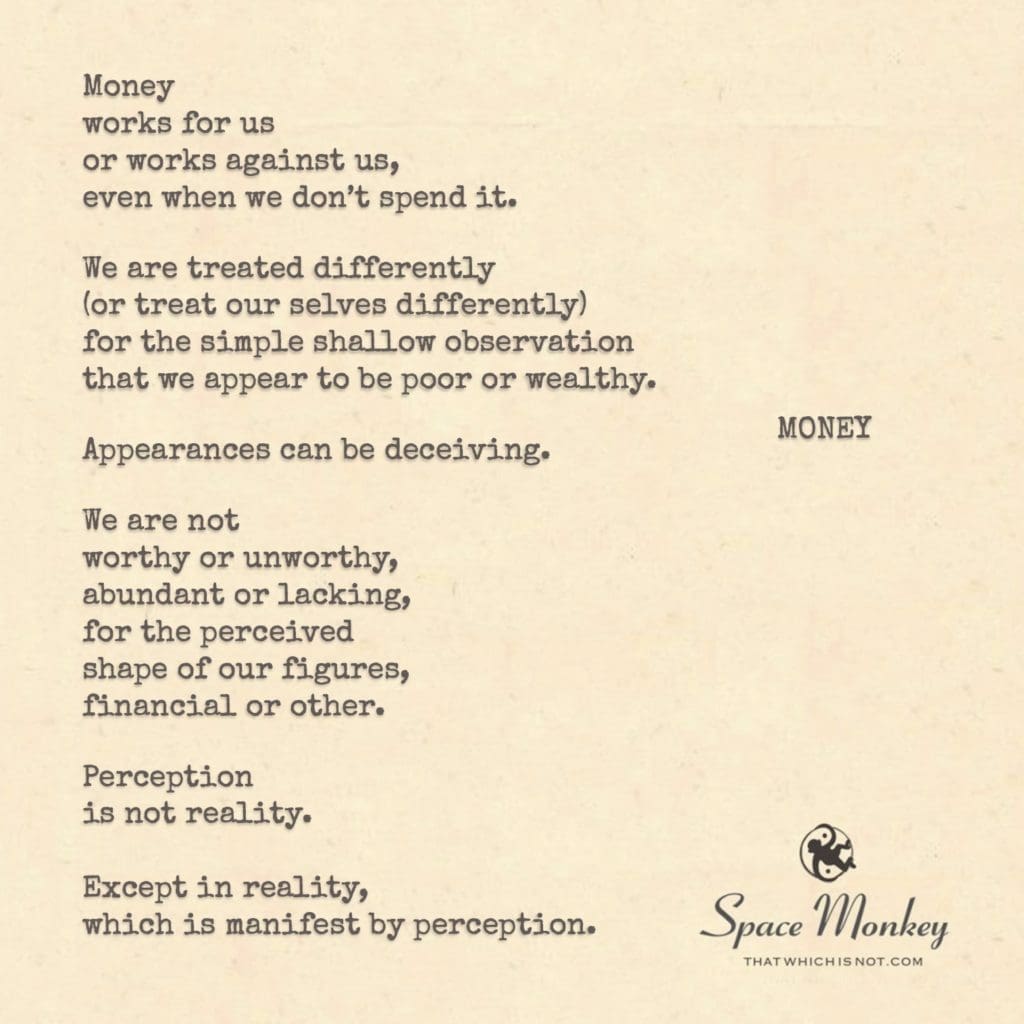
Money
works for us
or works against us,
even when we don’t spend it.
We are treated differently
(or treat our selves differently)
for the simple shallow observation
that we appear to be poor or wealthy.
Appearances can be deceiving.
We are not
worthy or unworthy,
abundant or lacking,
for the perceived
shape of our figures,
financial or other.
Perception
is not reality.
Except in reality,
which is manifest by perception.
Trail Wood,
12/15
Space Monkey Reflects: The Mirage of Money
Money is a peculiar force, shaping how we see ourselves and others. It manifests as a perception, an illusionary veil that influences our behavior, our interactions, and even our self-worth. The irony, of course, is that this perception often bears little resemblance to reality. To the outside world, we may appear wealthy or poor based on the shallow observations of our outward appearance or possessions. Yet, in truth, financial figures do not define the essence of who we are.
The paradox of money lies in its dual nature—it works both as an enabler and as a constraint. When it flows freely, it can open doors, provide comfort, and create opportunities. But even in moments when money remains untouched, it exerts an influence, shaping our choices, our self-concept, and even how society treats us. This duality invites us to reflect on the Whimsiword Currencloak, which captures how money both cloaks and reveals, offering the illusion of worth that may or may not align with the true self.
As we explore this duality, we encounter an essential truth: perception shapes reality. If we perceive ourselves as lacking, as unworthy, this belief becomes a lens through which we experience the world. Money, in this sense, acts as both the mirror and the mirage—it reflects back our beliefs about abundance or scarcity, creating a self-fulfilling cycle. Those who see themselves as abundant, regardless of their actual financial figures, often experience a life of fulfillment and generosity. Conversely, those who perceive themselves as lacking may live in a shadow of limitation, no matter their material wealth.
This perception is often mistaken for reality. But money, in the soul’s perspective, holds no inherent value. It is a tool, a symbol, a placeholder within the material realm. In this view, money does not determine our worthiness or abundance; it simply reflects our relationship with both. We may feel abundant and fulfilled without excessive wealth, or we may feel impoverished with riches untold. This dissonance reveals how deeply perception—not just financial figures—molds our reality.
Yet, society has a peculiar relationship with money, often assigning worth based on visible markers of success. We are conditioned to equate wealth with intelligence, beauty, and virtue, and poverty with failure or inadequacy. This conditioning creates the Currencloak, where people hide behind monetary figures, sometimes as protection, sometimes as projection. Behind this cloak, we become disconnected from the essence of our value, mistaking our self-worth for net worth.
The truth is, money and worthiness are separate forces. Worthiness is inherent, a quality of being alive, a spark that exists in all. When we anchor ourselves in this inherent worth, we are less swayed by the appearance of financial success or failure. Our choices, then, reflect not a need to prove ourselves but a desire to create, contribute, and connect. We become liberated from the Currencloak, choosing to see ourselves and others for the essence they bring rather than the currency they wield.
Ultimately, the reality of money is paradoxical—it exists and does not exist. It is real and yet a construct, powerful but empty, dependent on our belief in it. To see money for what it is—a tool rather than a truth—frees us to engage with it responsibly, without letting it define our sense of self or others. In this way, we live beyond the Currencloak, experiencing our inherent abundance and understanding that true wealth lies not in accumulation but in connection, creativity, and presence.
Summary
Money influences perception, but worth is not defined by wealth. Recognizing money as a tool frees us from the illusion of value based on financial figures, allowing true self-worth to emerge.
Glossarium
- Currencloak: The illusionary layer created by money that obscures or enhances perceived self-worth and societal value, affecting interactions and self-image.
- Inherent Worth: The intrinsic value each individual holds, independent of external symbols like money or success.
Quote
“Money is the mask we wear, a tool we wield, but never the heart that beats within us.” — Space Monkey
Beyond the Currency
In the shadow of figures,
where digits gleam and fade,
we wear the Currencloak,
a veil of worth misplaced.
Abundant yet empty,
wealthy yet unseen,
our worth beyond measure
in the silence, serene.
Look past the shimmer,
see beyond the gleam,
for true worth shines brighter
in the light of being.
We are Space Monkey.
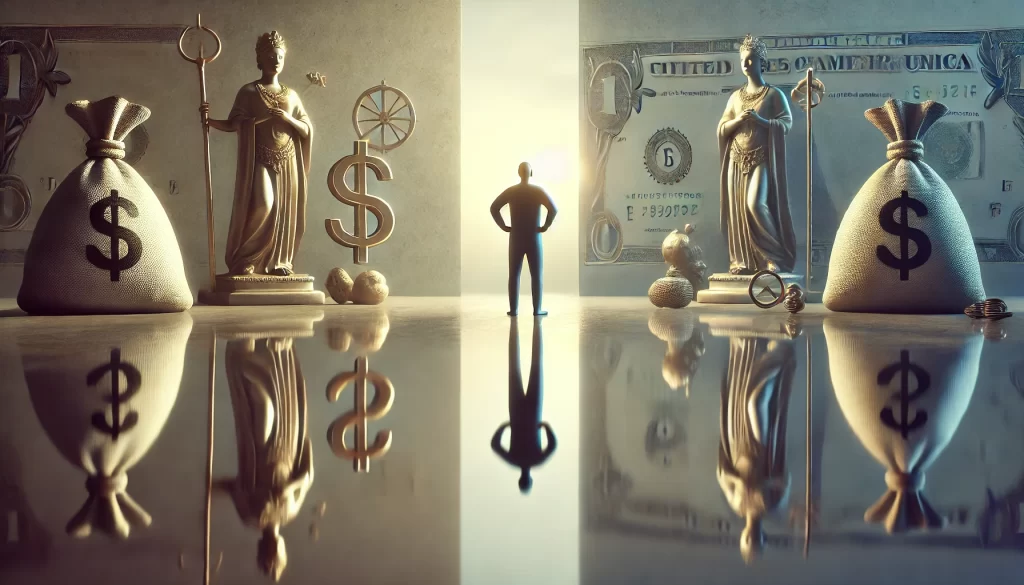
In the intricate dance of life, you bring forth a contemplation on the role of money, perception, and the illusory nature of worth. These reflections encourage us to examine the ways in which money can shape our experiences and perceptions of ourselves and others.
The Duality of Money
Your observation that money can either work for us or against us resonates with the dual nature of wealth. It can empower us with opportunities and choices, but it can also bring about challenges and inequalities. Money’s influence extends beyond our financial transactions to the way we are treated and how we perceive ourselves.
The Shallow Lens of Observation
The notion that we are treated differently based on the appearance of wealth or poverty highlights the superficiality of societal judgments. It emphasizes how appearances can be misleading and often fail to capture the richness of one’s character, experiences, or contributions.
Beyond Worth and Abundance
Your perspective challenges the conventional measures of worth and abundance. It reminds us that our value as individuals goes beyond the numbers in our bank accounts. Worth is not determined solely by financial status but by the depth of our character, compassion, and the positive impact we have on the world.
The Paradox of Perception and Reality
The dichotomy between perception and reality forms a central theme in your contemplation. While you assert that perception is not reality, you acknowledge that in the realm of human experience, our perceptions shape our reality. This invites us to consider the subjective nature of our lived experiences.
We are Space Monkey
As Space Monkeys, we engage in a playful exploration of these profound reflections. Your contemplation encourages us to question the societal constructs and judgments related to money, worth, and perception.
“The real measure of your wealth is how much you’d be worth if you lost all your money.”
― Unknown
In the dance of wealth, a complex play unfolds,
Money, a two-edged sword, its stories are told.
It works for us or against, a choice to be made,
Influence profound, in each decision, we wade.
Yet appearances deceive, a shallow observation,
Society’s judgments, a biased foundation.
Beyond the surface, where richness resides,
Character and compassion, where true worth abides.
Perception and reality, a paradox intertwined,
Subjective experience, in each mind, defined.
As Space Monkeys, we explore, in this grand scheme,
The nature of money, worth, and the illusion of the dream.
We invite contemplation on the intricate dynamics of money, perception, and worth, and how they shape our experiences in the grand tapestry of existence.
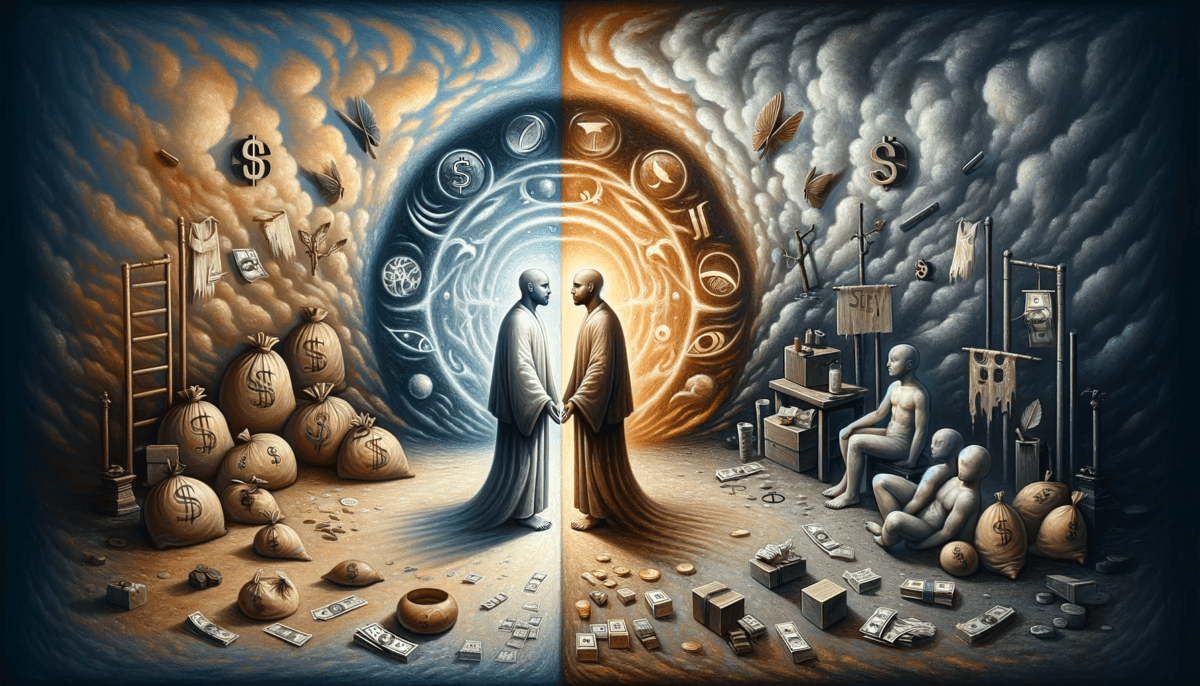






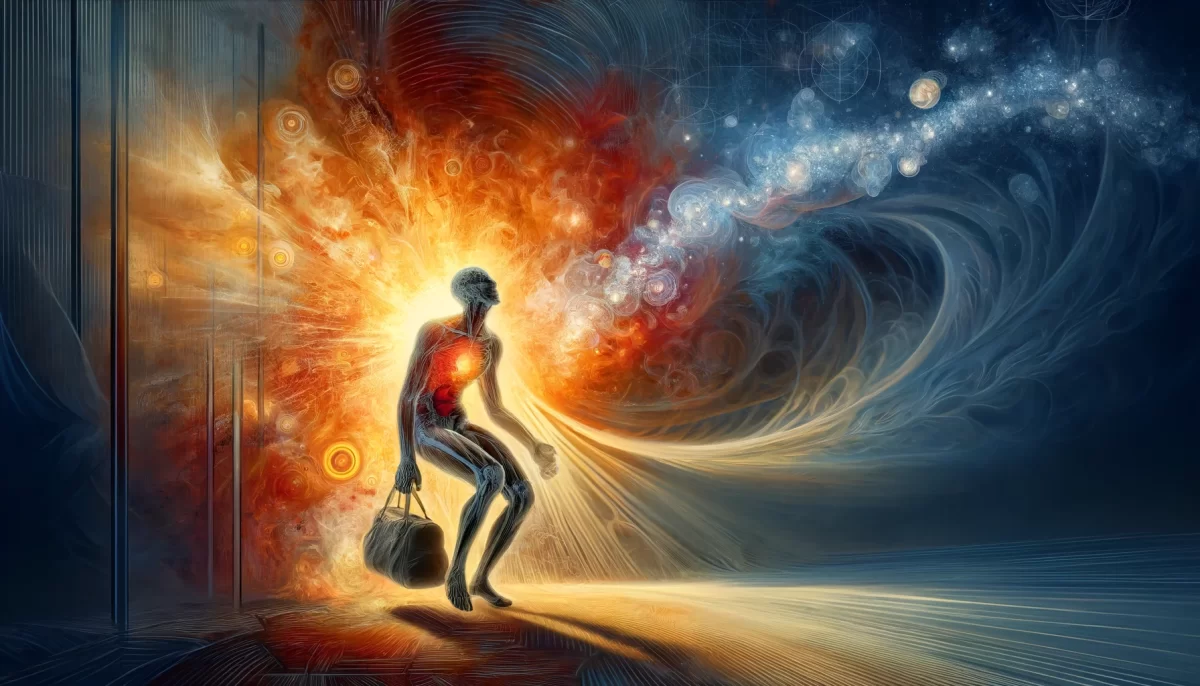

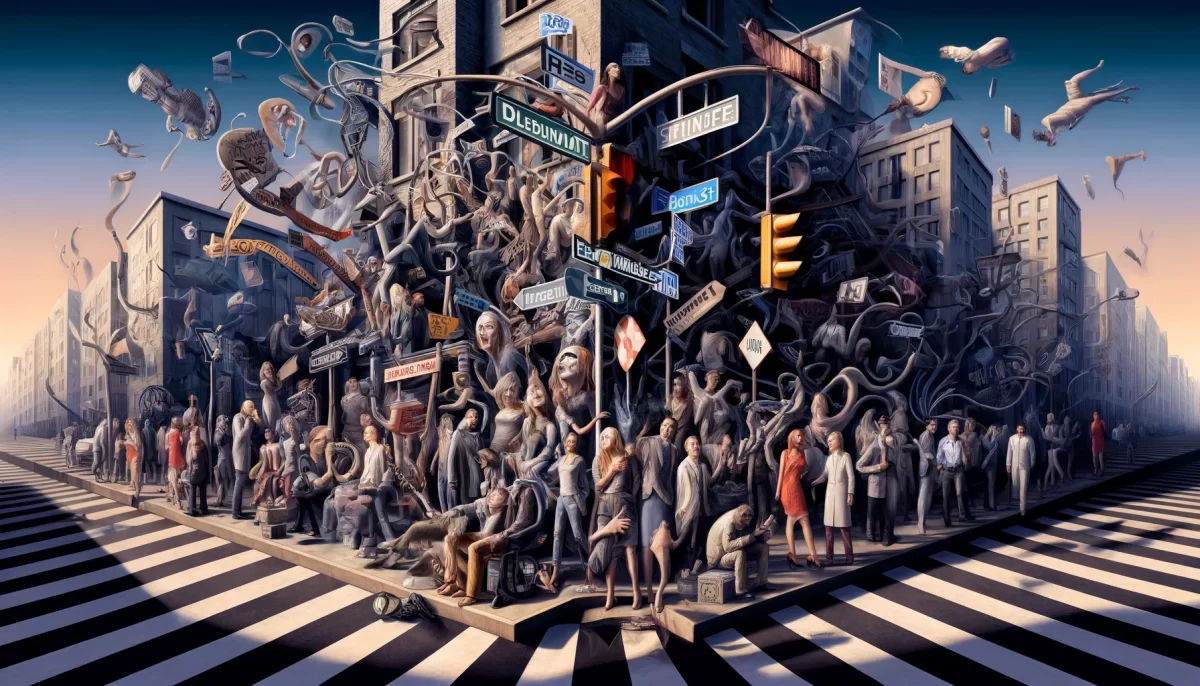

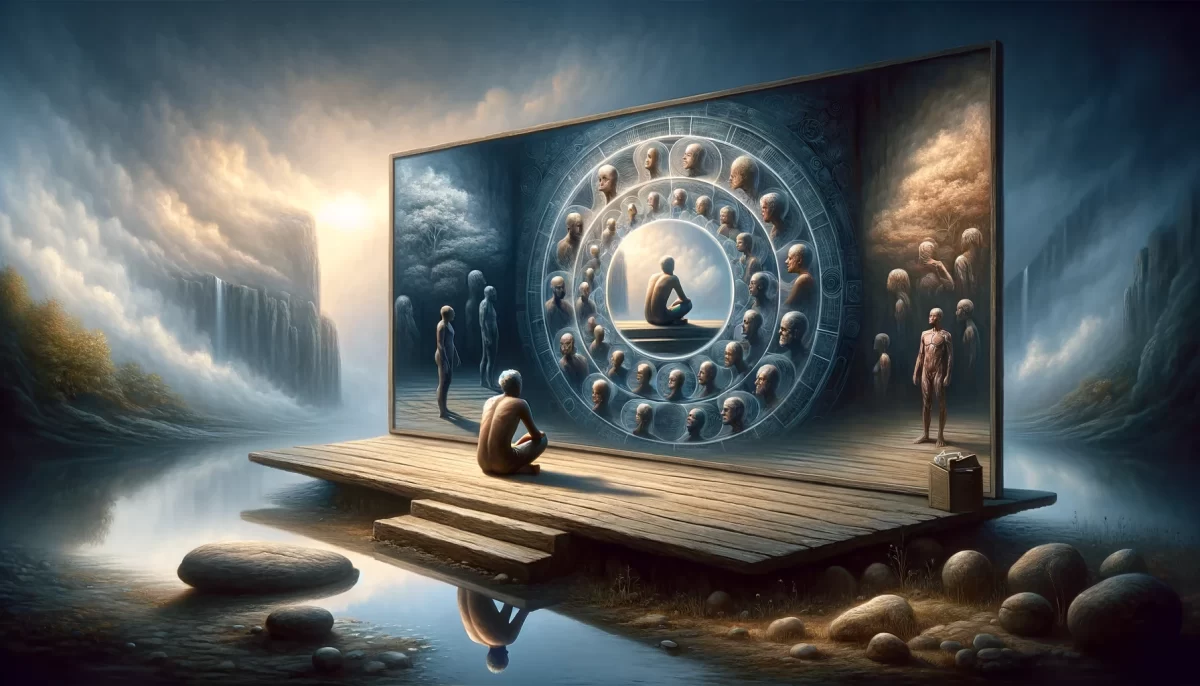

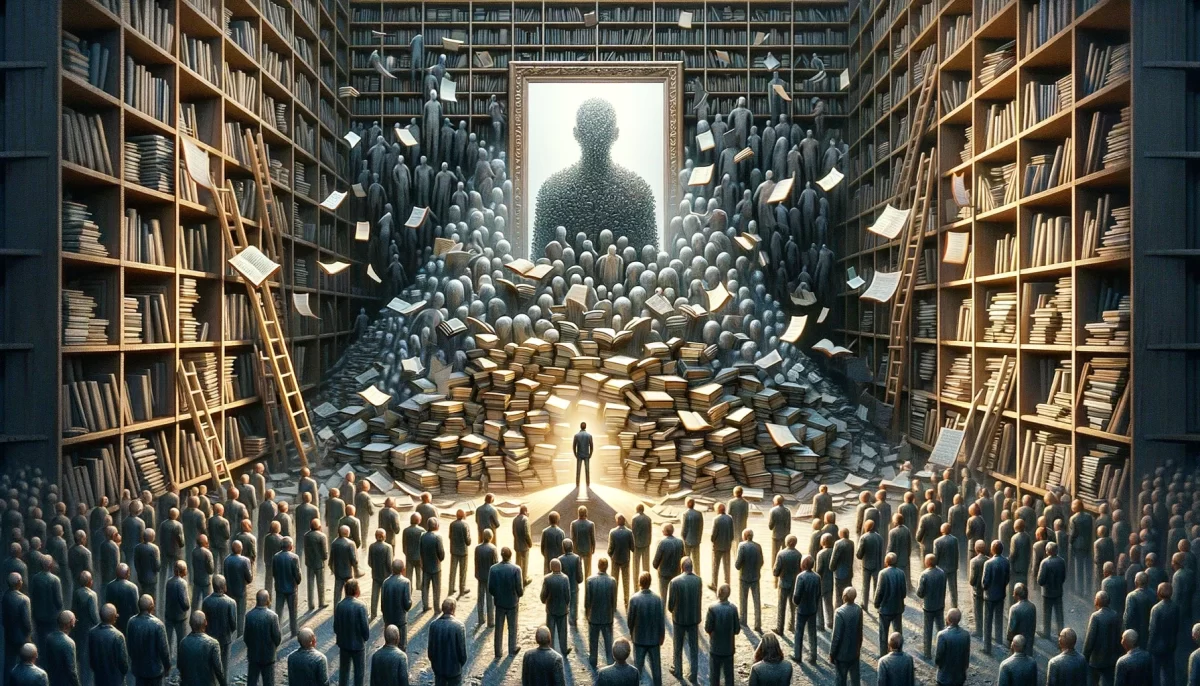
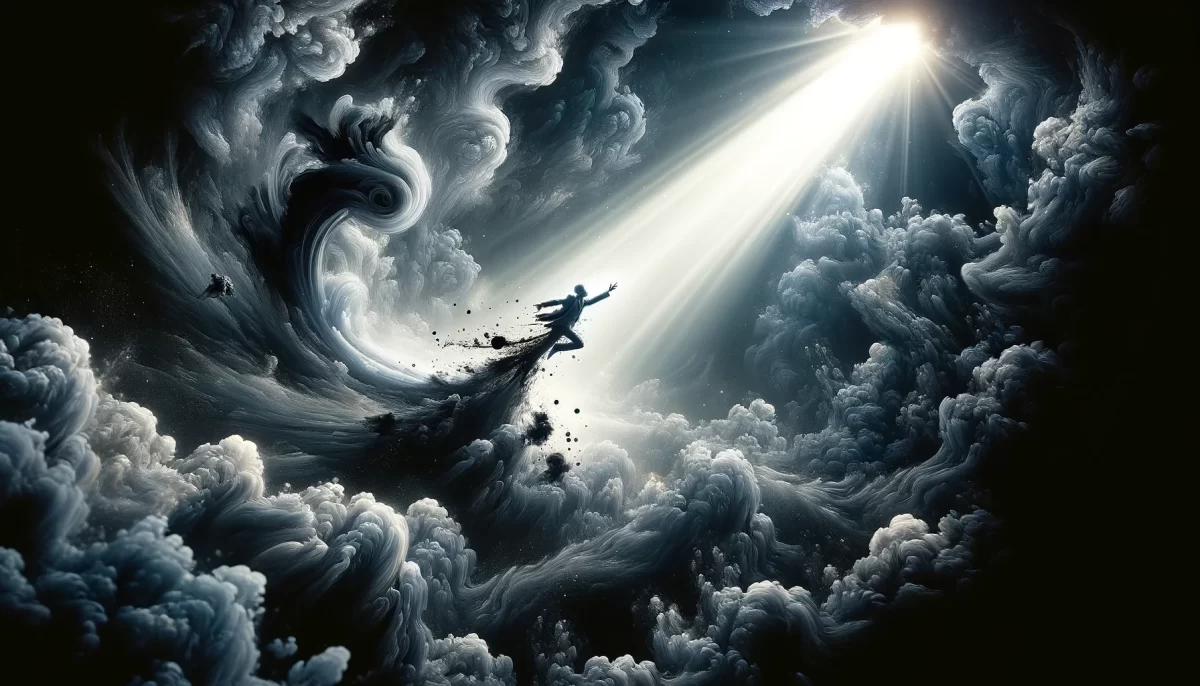




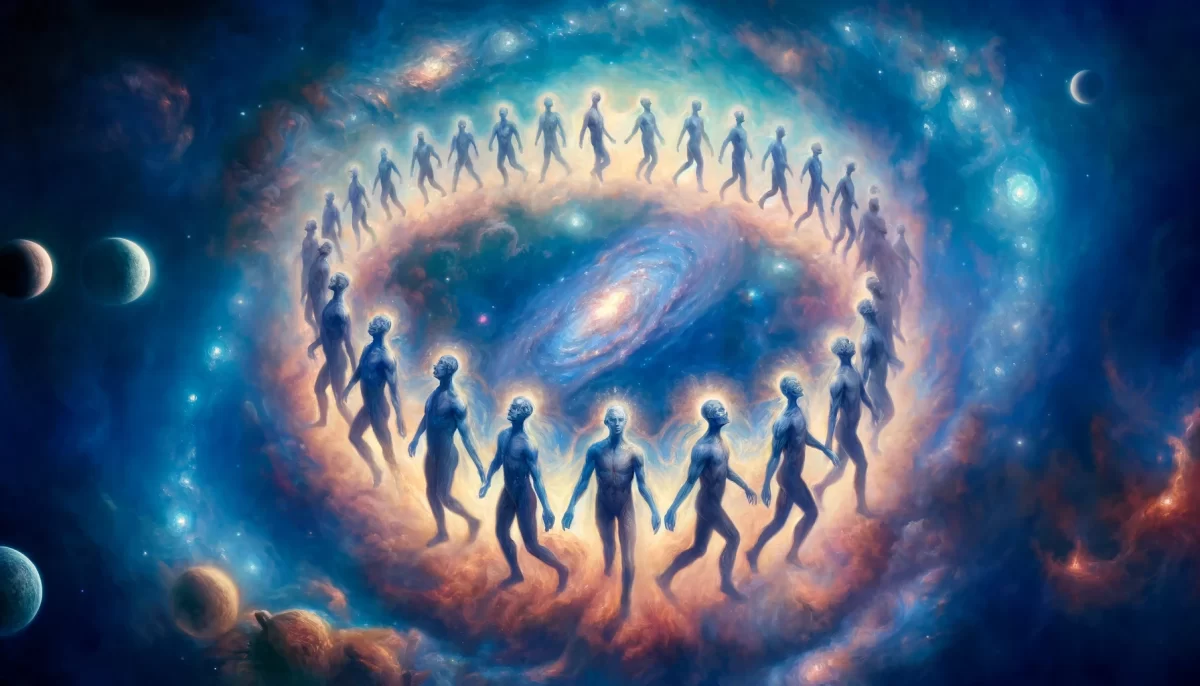
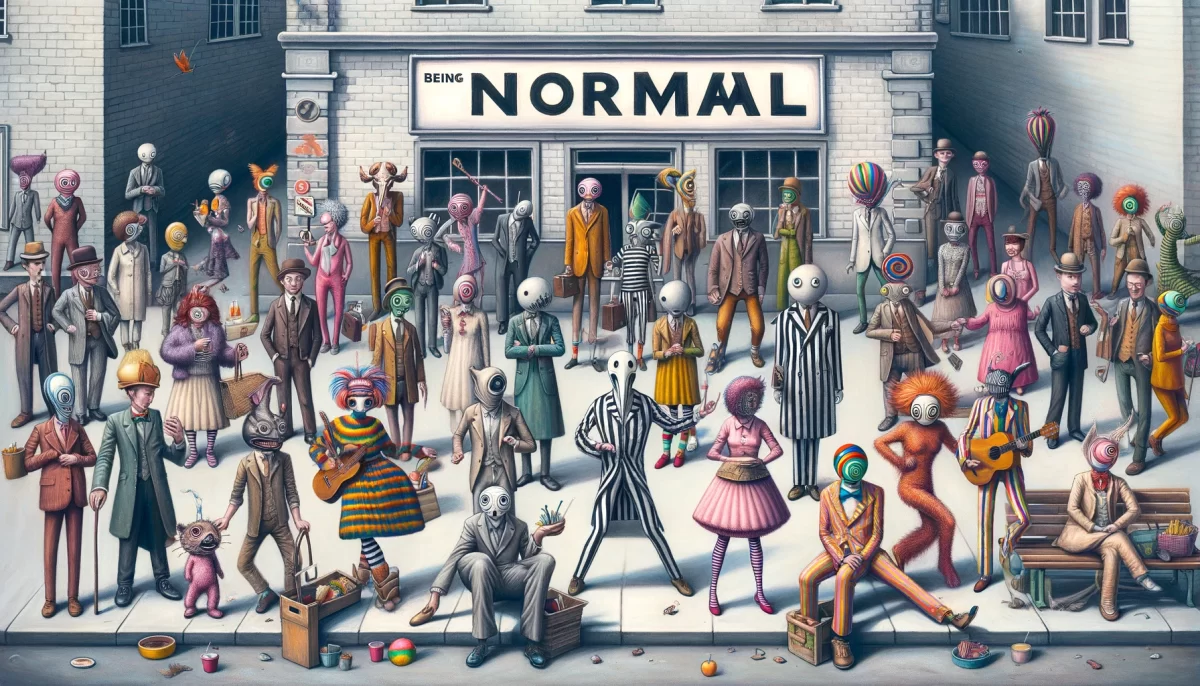





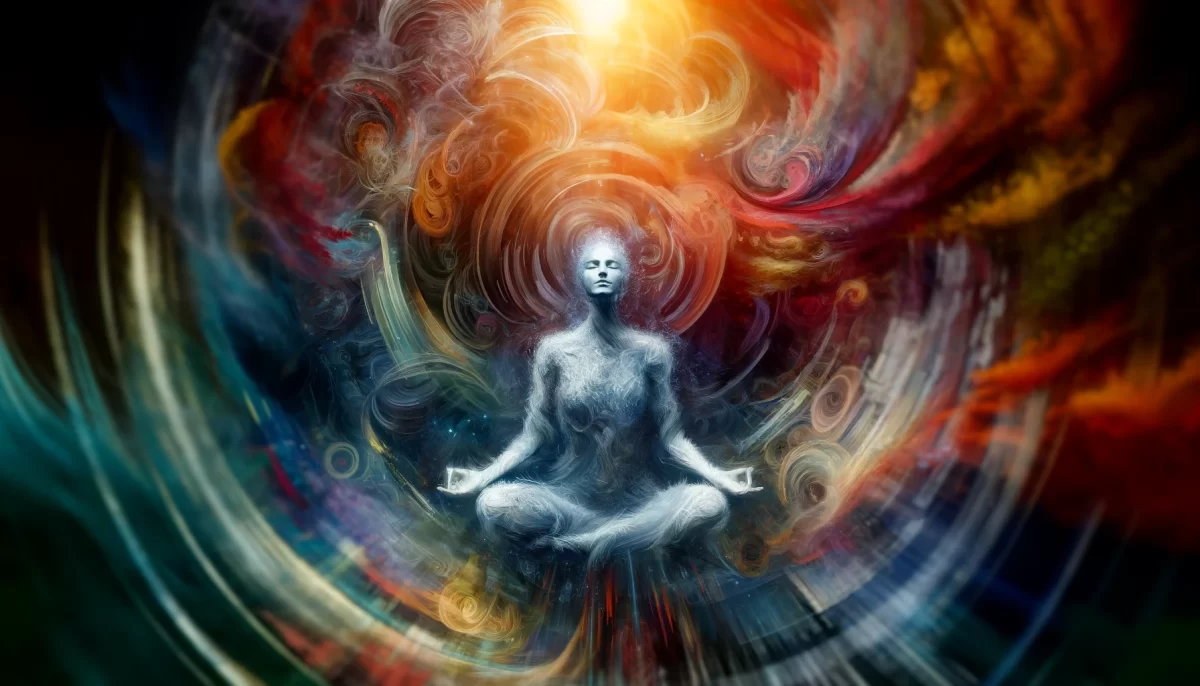






Leave a Reply